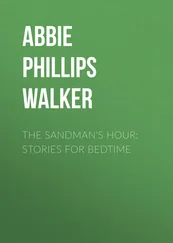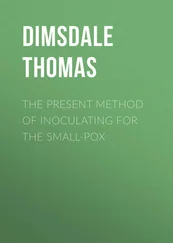Thomas Walker - The Depot for Prisoners of War at Norman Cross, Huntingdonshire. 1796 to 1816
Здесь есть возможность читать онлайн «Thomas Walker - The Depot for Prisoners of War at Norman Cross, Huntingdonshire. 1796 to 1816» — ознакомительный отрывок электронной книги совершенно бесплатно, а после прочтения отрывка купить полную версию. В некоторых случаях можно слушать аудио, скачать через торрент в формате fb2 и присутствует краткое содержание. Жанр: foreign_prose, История, foreign_edu, foreign_antique, на английском языке. Описание произведения, (предисловие) а так же отзывы посетителей доступны на портале библиотеки ЛибКат.
- Название:The Depot for Prisoners of War at Norman Cross, Huntingdonshire. 1796 to 1816
- Автор:
- Жанр:
- Год:неизвестен
- ISBN:нет данных
- Рейтинг книги:3 / 5. Голосов: 1
-
Избранное:Добавить в избранное
- Отзывы:
-
Ваша оценка:
- 60
- 1
- 2
- 3
- 4
- 5
The Depot for Prisoners of War at Norman Cross, Huntingdonshire. 1796 to 1816: краткое содержание, описание и аннотация
Предлагаем к чтению аннотацию, описание, краткое содержание или предисловие (зависит от того, что написал сам автор книги «The Depot for Prisoners of War at Norman Cross, Huntingdonshire. 1796 to 1816»). Если вы не нашли необходимую информацию о книге — напишите в комментариях, мы постараемся отыскать её.
The Depot for Prisoners of War at Norman Cross, Huntingdonshire. 1796 to 1816 — читать онлайн ознакомительный отрывок
Ниже представлен текст книги, разбитый по страницам. Система сохранения места последней прочитанной страницы, позволяет с удобством читать онлайн бесплатно книгу «The Depot for Prisoners of War at Norman Cross, Huntingdonshire. 1796 to 1816», без необходимости каждый раз заново искать на чём Вы остановились. Поставьте закладку, и сможете в любой момент перейти на страницу, на которой закончили чтение.
Интервал:
Закладка:
23
There is evidence in correspondence still extant, that much friction arose between the commander of the Military Guard and the agent, as to the power of the latter to interfere in the steps required for the safe custody of the prisoners.
24
This shows that about 4,000 prisoners were to be removed from Falmouth to Norman Cross, their hammocks, added to the 1,000 on the way from London, making the number correspond with the 5,000 sets of bedding.
25
Lavengro , chap. iii.
26
Evidence that two years later meat could be obtained at a much lower rate has come under my notice, from an unexpected source. On the fly-leaf of a copy of Batty’s Bible, in the possession of a descendant of Mr. W. Fowler, is written below the name W. Fowler (in the same writing, but in paler ink), “Came down to Norman Cross March 10th, 1799, to serve the prisoners of War at Yaxley.” In a different handwriting has been inserted after “Came down,” “from London,” and after Yaxley, “with Beef at 28 s. the cwt.” The date 1799 has also been altered in dark ink to 1795, which was of course a wrong correction, as there was no prison at Norman Cross until 1797.—T. J. W.
27
Appendix B, Biographical Sketch of Captain Woodriff.
28
So slowly did the Government inquiry which followed on Captain Woodriff’s report progress, that it was not until two years later that judgment was pronounced.— Naval Chronicle , vol. i., pp. 523–6.
29
For examples of the individual entries in the General Register, the Death Register, and the Register of Prisoners on Parole, see Appendix C.
30
Cartel is an agreement between foreign states as to the exchange of the prisoners; its meaning was extended to the document authorising the exchange of an individual prisoner, and it was even used to signify the transport vessel engaged to convey the exchanged prisoners to their native country.
31
In All Souls’ Church at Peterborough is preserved the Register, kept by the resident Priest at King’s Cliff, of the baptisms performed by priests within the mission of his church. Stilton, the Depot, and the surrounding villages were within that district. Two of the entries are baptisms of the sons of Delapoux; they will be referred to in a future chapter. They have always been supposed to be those of the baptism of the children of a French prisoner, who had married an English wife (these marriages were of rare occurrence), and the discovery in the Record Office of this entry of John Andrew Delapoux’s appointment as a clerk is an instance of the way in which research upsets old traditions. I find the entry of Delapoux’s marriage to Sarah Mason on the 2nd September 1802, in the Register of Stilton church. His children were baptized as Catholics, and the priest specially calls Sarah Mason his lawful wife. Another instance in this list, selected haphazard by Mr. Rhodes from papers in the Record Office, shows how in two generations a false family tradition may arise. In 1894 I visited, in search of information, the daughter-in-law, then a widow aged eighty-six, of the James Robinette whose engagement as a permanent mason and labourer at the Depot is recorded on page 61. She told me her husband’s father was a French prisoner, who had been made a turnkey at the Barracks! On searching the church Register, 1 found that the Robinettes had been residents in Yaxley fifty years at least before the arrival of the prisoners at Norman Cross, and between 1748 and 1796 the records of three generations appear in the register—James, the son of James and Catherine Robinette, born in 1780, was doubtless the man appointed in 1813 to the job at the Barracks.
The Robinettes were probably some of the many French Huguenots who came over after the repeal, on the 15th October 1685, of the Edict of Nantes, and settled in the neighbourhood of Peterborough to further reclaim and cultivate the lately drained fens. The fallacy of coming to conclusions, founded on names only without other evidence, is illustrated by the following sentence in a series of papers on Norman Cross published in the Peterborough Advertiser by the late Rev. G. N. Godwin: “At Stilton the names of Habarte, of Drage, and of Tesloff, and near Thorney the name of Egar, and at Peterborough, among others, the name of Vergette, still speak of the old war time.” Of these names, Habarte alone is that of descendants of a French prisoner, the majority of those bearing the others are of the old Huguenot stock, while the Vergettes, who formerly believed themselves to be descendants of an ancestor of this same stock, now know that they were an old-established English family in 1555, when their ancestor, Robert Vergette, was Sheriff of Lincoln.
32
Loc. cit. , 93–95.
33
In a Parliamentary Report for the year 1800 it is stated that the price of wheat was only kept down to £5 a quarter by the system of bounties on imported wheat, the same applying to the prices of other grain. The present proprietor of “The Oundle Brewery” kindly extracted from the Books of the Firm particulars as to the beer supplied to the Regiments quartered at Norman Cross in the year 1799. The total amount was 4,449 barrels of 36 gallons each. This gentleman adds, the beer could not be very good, the price being about 6 d. a gallon. His father said that he had often been told by his father, that the great expansion of the business was due to the contract with the Barracks. Buckles Brewery, a Peterborough business, also flourished on a large contract to supply the prisoners with “Small Beer.” Mr. George Gaunt, who was formerly in a large business as a butcher, informed me that, taking the figures which I gave him as a basis, and the average weight of a bullock at about 850 lb., he considered that from five to six would be required every day, if beef alone and no other meat were supplied. These figures give some idea of the advantages derived by the neighbouring traders from this great Government Establishment.
The following extract from a letter addressed to me by Mr. Samuel Booth shows how many people in one family group alone found employment in connection with the Depot:
“I send you a few particulars about my relatives, which may, or may not, be useful to you.
“My great-grandmother, Mrs. Allen, who lies in the old graveyard, used to carry green-grocery to sell to the prisoners.
“My father’s father was Pay-Sergeant at the Barracks.
“My grandfather, Samuel Briggs, of Ailsworth, was constable; he was also in the Militia, and was told off to keep guard on Thorpe Road, at the entrance to Peterboro’, on the escape of some prisoners, but who went the way to Ramsay. I have a box made by the prisoners, presented to my grandfather, who was also a carpenter, and at times went to work there. The prisoners used to beg pieces of wood and other materials of him. He used to speak of their cleverness in the making of fancy articles, and of their endeavours to escape—one got in the manure cart, and got away.”
34
Knowing how dogs as a rule refuse to eat meat impregnated with herbs and condiments, we probably have here the explanation of little George Borrow’s impression of the food of the prisoners, which forty years later made him write of it, “Rations of Carrion meat and bread from which I have seen the very hounds occasionally turn away.” Every one who knows the habit of dogs, knows that many of them would turn away from the meat which had been boiled for four or five hours with a broth impregnated with herbs.
Читать дальшеИнтервал:
Закладка:
Похожие книги на «The Depot for Prisoners of War at Norman Cross, Huntingdonshire. 1796 to 1816»
Представляем Вашему вниманию похожие книги на «The Depot for Prisoners of War at Norman Cross, Huntingdonshire. 1796 to 1816» списком для выбора. Мы отобрали схожую по названию и смыслу литературу в надежде предоставить читателям больше вариантов отыскать новые, интересные, ещё непрочитанные произведения.
Обсуждение, отзывы о книге «The Depot for Prisoners of War at Norman Cross, Huntingdonshire. 1796 to 1816» и просто собственные мнения читателей. Оставьте ваши комментарии, напишите, что Вы думаете о произведении, его смысле или главных героях. Укажите что конкретно понравилось, а что нет, и почему Вы так считаете.












